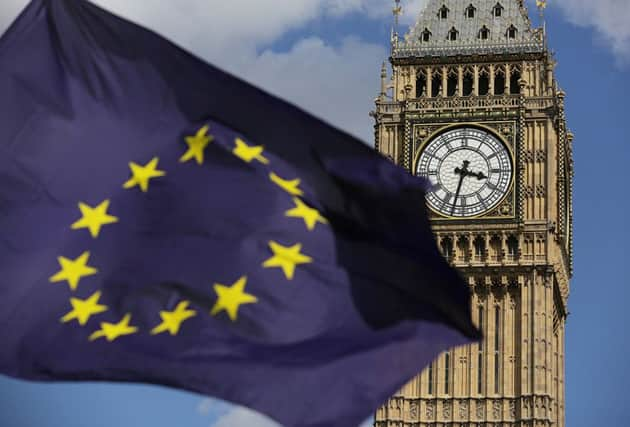'˜No sign of Brexit-fuelled food price rises'


The grocery share figures from Kantar Worldpanel, published for the 12 weeks ending August 14 2016, show the market growing at 0.3 per cent as an upturn in the weather spurred consumers into increasing their spend. This is the fastest acceleration for the overall market since March 2016.
Fraser McKevitt, head of retail and consumer insight at Kantar Worldpanel, said: “The sun’s eventual appearance was a welcome boost to the market after a delayed start to the summer. Frozen confectionery sales grew by 23 per cent in the last month, while chilled drinks increased by 10 per cent.
Advertisement
Hide AdAdvertisement
Hide Ad“At Iceland ice cream was the fastest growing category, helping it to an overall 4.3 per cent increase in sales on last year.
“Meanwhile, price cuts such as the ‘7 Day Deals’ and summer loyalty promotions helped bring an additional 129,000 shoppers through Iceland’s doors.”
Promotional sales dropped to their lowest level since September 2010 as the major retailers continue to move towards more simple pricing models.
Mr McKevitt said: “Only 37.7 per cent of grocery sales were bought on any kind of promotion this period – a significant decrease from highs of over 40 per cent we were seeing in 2015. Fewer promotions doesn’t mean consumers are paying more for their shopping but does reflect the renewed focus on own-label lines which is visible across the market.
Advertisement
Hide AdAdvertisement
Hide Ad“Shoppers are clearly responding to the better value offered through own label rather than money off, with own brand goods growing at both ends of the price spectrum: premium retailer brands are up by 9 per cent and value lines up by 2 per cent.”
There remains no evidence of Brexit-fuelled inflation causing food prices to rise, according to Kantar Worldpanel. In fact, grocery price inflation remains negative, with a representative basket of goods 1.3 per cent cheaper than it was last year.
A spokesman said: “Once again Lidl is the fastest growing supermarket, with sales up 12.2 per cent.
“The retailer witnessed strongest growth in its key produce, dairy and chilled aisles, increasing its share by 0.4 percentage points on last year to 4.5 per cent of the market.
Advertisement
Hide AdAdvertisement
Hide Ad“Sales at Aldi rose by 10.4 per cent, with share up by 0.6 percentage points to 6.2 per cent. Both discounters benefitted from rising premium own label sales and forward planning by having their back to school ranges in store just as schools were breaking up.
Tesco’s sales fell by 0.4 per cent, the slowest rate of decline in six months.
Mr McKevitt said: “Current trends suggest the retailer may return to growth this year, which would mark the end of a decline stretching back to March 2015. Tesco’s recent product launches have been making a positive impact on its performance, with its ‘Farm brands’ finding their way into over a quarter of the Tesco baskets this period.”
Sales at Co-op rose by 2.8 per cent compared with last year, taking its market share to 6.6 per cent – the highest achieved since 2012.
Advertisement
Hide AdAdvertisement
Hide AdShoppers have heeded Co-op’s call to shop little and often with this growth primarily coming from an increased number of trips to the retailer.
Sales declined at Sainsbury’s by 0.6 per cent and at Morrisons they fell by 1.8 per cent, leaving the retailers with a 16.1 per cent and 10.6 per cent share of the market respectively, according to Kantar Worldpanel.
Asda’s decline of 5.5 per cent remains unchanged from last month, with share falling by 0.9 percentage points to 15.7 per cent. Waitrose sales rose by 1.4 per cent with market share remaining at 5.1 per cent.